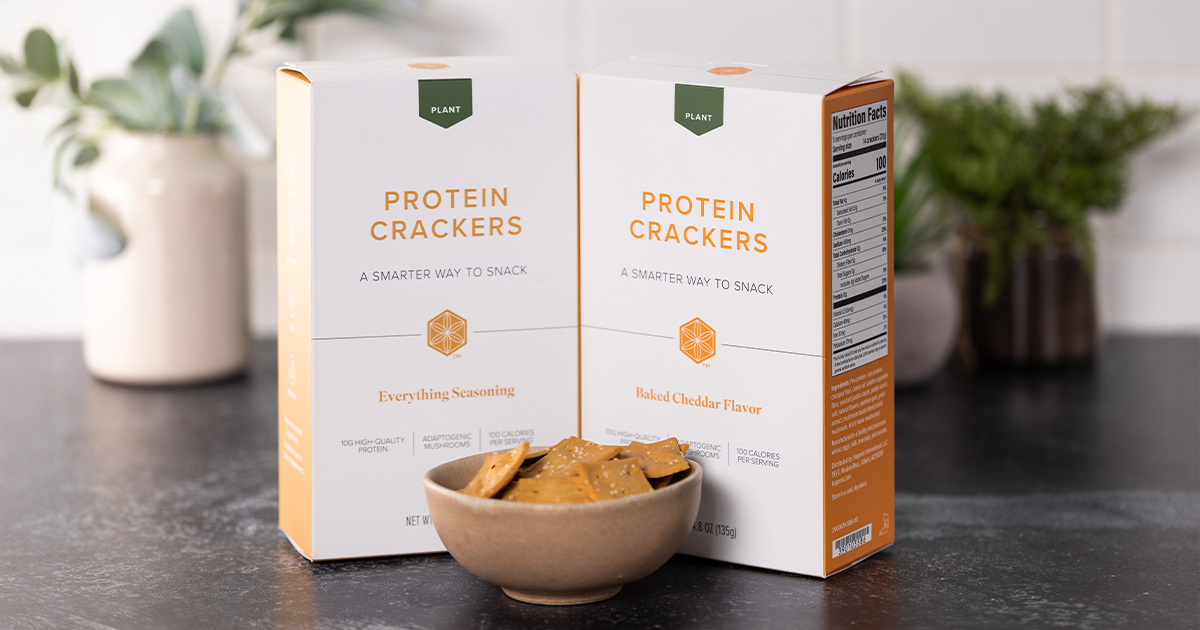Eating more protein is linked to a smaller waist and better cholesterol levels, a new study finds.
Researchers at the US Army Research institute of Environmental Medicine found an association between habitually consuming protein in excess of the recommended dietary allowance (RDA) and lower body mass index, a smaller waist, and higher levels of the HDL “the good” cholesterol (1). The findings published in the Journal of Nutrition, are from protein intake and cardiovascular risk factors that were assessed in approximately 24,000 US adults over a nine-year period.
In regards to this study authors Stefan Pasiakos, Harris Lieberman and Victor Fulgoni noted, “These findings are consistent with previous studies and suggest that the cardiometabolic advantages of higher-protein diets are largely independent of energy, carbohydrate, and fat intake, but appear limited to HDL cholesterol, waist circumference, and BMI.”
The results contradict recommendations established by the Dietary Guidelines for Americans. For instance, the RDA is currently 0.8 grams per kilogram, so for a 150-pound woman this translates into roughly 55 grams of protein per day. A higher protein diet would be 1 to 1.5 grams per kilogram equating to 70 to 100 grams for the same 150-pound woman.
Historically, nutritionists have been skeptical over eating a high-protein diet usually because of potential long-term adverse health effects (2;3). Some studies have suggested that over-consuming protein like red meat may increase cardiovascular risk factors and all-cause mortality (4-6). However, the newer research has all but exonerated high-protein diets of these concerns.
Higher protein diets also remain popular and for good reason—people who consume more find they have an easier time managing weight and preserving muscle during weight loss (1). In a systematic review published in the Journal of The American College of Sports Nutrition, the authors concluded, “There is convincing evidence that a higher protein intake increases thermogenesis and satiety [fullness] compared to diets of lower protein content. The weight of evidence also suggests that high protein meals lead to a reduced subsequent energy intake (7).”
Health benefits from a higher protein diet are often greater than those observed when eating a lower-fat, higher-carbohydrate diet consistent with the 2010 Dietary Guidelines for Americans and recommendations of the American Heart Association (8).
Researchers from this study found the health effects of higher-protein diets were greater in overweight individuals with positive effects on HDL cholesterol, waist circumference, and BMI. In fact, the good cholesterol HDL was 15 percent higher in those who ate more protein. Moreover, no negative association was found between higher protein intake and cardiovascular disease risk (1).
Nutrition researchers stress that the RDA of 0.8 grams per kilogram for protein represents the minimum amount of protein required to avoid deficiency (9). Numerous previous studies also show advantages of consuming protein in excess of the RDA (10-13).
Ideally, high-quality protein like whey should be consumed because of its advantages of helping maintain muscle during weight reduction. Whey is also relatively low in calories making supplementation convenient for promoting muscle building while promoting breakdown of fat. Researchers confirmed whey’s benefits in a 12-week trial that involved overweight subjects consuming whey protein at breakfast and dinner (14).
What the new study confirms is that higher protein intake is associated with reduced obesity. More specifically, decreased waist circumference and body mass index suggesting that visceral fat was lower for Americans consuming higher-protein diets.
For consumers wanting to lose weight, the new study adds more evidence that eating more protein than the RDA is not only safe, but is also a valid nutritional tool to improve cardiovascular health and bodyweight.
References
- Pasiakos SM, Lieberman HR, Fulgoni VL. Higher-Protein Diets Are Associated with Higher HDL Cholesterol and Lower BMI and Waist Circumference in US Adults. The Journal of Nutrition 2015.
- Levine ME, Suarez JA, Brandhorst S et al. Low protein intake is associated with a major reduction in IGF-1, cancer, and overall mortality in the 65 and younger but not older population. Cell metabolism 2014;19:407-17.
- Fukagawa NK. Protein requirements: methodologic controversy amid a call for change. The American journal of clinical nutrition 2014;99:761-2.
- Lagiou P, Sandin S, Lof M, Trichopoulos D, Adami HO, Weiderpass E. Low carbohydrate-high protein diet and incidence of cardiovascular diseases in Swedish women: prospective cohort study. BMJ: British Medical Journal 2012;344.
- Fung TT, van Dam RM, Hankinson SE, Stampfer M, Willett WC, Hu FB. Low-Carbohydrate Diets and All-Cause and Cause-Specific MortalityTwo Cohort Studies. Annals of internal medicine 2010;153:289-98.
- Micha R, Wallace SK, Mozaffarian D. Red and processed meat consumption and risk of incident coronary heart disease, stroke, and diabetes mellitus a systematic review and meta-analysis. Circulation 2010;121:2271-83.
- Halton TL, Hu FB. The effects of high protein diets on thermogenesis, satiety and weight loss: a critical review. Journal of the American College of Nutrition 2004;23:373-85.
- Lichtenstein AH, Appel LJ, Brands M et al. Diet and lifestyle recommendations revision 2006 A scientific statement from the American Heart Association nutrition committee. Circulation 2006;114:82-96.
- Institute of Medicine (US), Institute of Medicine (US). Dietary reference intakes for energy, carbohydrate, fiber, fat, fatty acids, cholesterol, protein, and amino acids. Natl Academy Pr, 2005.
- Katsanos CS, Kobayashi H, Sheffield-Moore M, Aarsland A, Wolfe RR. A high proportion of leucine is required for optimal stimulation of the rate of muscle protein synthesis by essential amino acids in the elderly. American Journal of Physiology-Endocrinology And Metabolism 2006;291:E381-E387.
- Paddon-Jones D, Westman E, Mattes RD, Wolfe RR, Astrup A, Westerterp-Plantenga M. Protein, weight management, and satiety. The American journal of clinical nutrition 2008;87:1558S-61S.
- Rennie MJ. Anabolic resistance: the effects of aging, sexual dimorphism, and immobilization on human muscle protein turnover This paper is one of a selection of papers published in this Special Issue, entitled 14th International Biochemistry of Exercise Conference-Muscles as Molecular and Metabolic Machines, and has undergone the Journal’s usual peer review process. Applied Physiology, Nutrition, and Metabolism 2009;34:377-81.
- Westerterp-Plantenga MS, Nieuwenhuizen A, Tome D, Soenen S, Westerterp KR. Dietary protein, weight loss, and weight maintenance. Annual review of nutrition 2009;29:21-41.
- Frestedt JL, Zenk JL, Kuskowski MA, Ward LS, Bastian ED. A whey-protein supplement increases fat loss and spares lean muscle in obese subjects: a randomized human clinical study. Nutr Metab (Lond) 2008;5:8.





